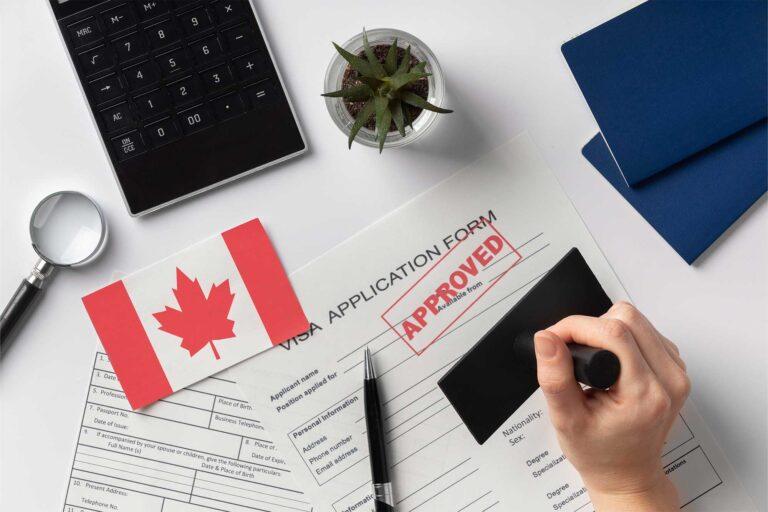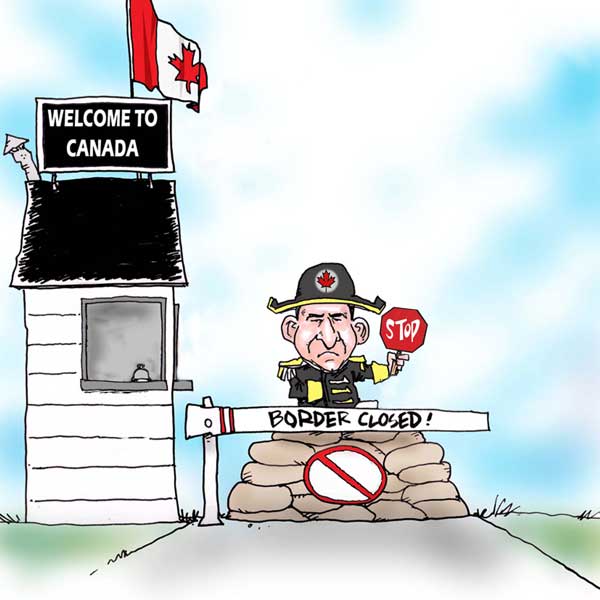Denied Entry to Canada for a DUI
Denied Entry to Canada for a DUI?
Canada has strict immigration and border security policies, which include rigorous checks on individuals with criminal records. One common reason for being denied entry into Canada is a past conviction for driving under the influence (DUI). Have you been denied entry to Canada for a DUI? While it may seem like a minor offense in some countries, Canada treats DUI offenses seriously under its immigration laws. If you have been convicted of a DUI, understanding the implications and the available remedies can help you navigate this challenge. We can assist you with entering into Canada with a DUI or DWAI.
Why DUI Convictions Affect Entry into Canada
In Canada, DUI is considered a serious criminal offense. According to Canadian immigration law, any foreign national with a criminal record can be deemed inadmissible. This includes offenses that may be considered misdemeanors in other countries. The Canadian government classifies a DUI as a serious crime, which can result in permanent inadmissibility. This stance is part of Canada’s broader commitment to maintaining public safety and ensuring that those entering the country do not pose a risk.
Understanding Criminal Inadmissibility
Criminal inadmissibility refers to the legal framework that prevents individuals with criminal records from entering Canada. This concept is outlined in the Immigration and Refugee Protection Act (IRPA). Under this act, foreign nationals who have committed an act that would be considered a crime in Canada can be denied entry. This includes DUI OR DWAI convictions, even if they were committed outside of Canada.
Temporary Resident Permit (TRP)
One way to overcome criminal inadmissibility due to a DUI is by applying for a Temporary Resident Permit (TRP). So, if you have been denied entry to Canada for a DUI, we can assist your entry by applying for a Temporary Resident Permit (TRP). A TRP allows individuals to enter Canada for a specific purpose and for a limited period, despite their inadmissibility. This permit is granted at the discretion of the Canadian immigration authorities and requires the applicant to demonstrate a valid reason for their visit.
Applying for a TRP
- Reason for Visit: Clearly state the reason for your visit to Canada. It could be for business, family, or other urgent matters. Any reason can work. However, the reason needs to match the length of time you are asking. For example, if you need to enter for leisure, asking for the full 3 years TRP might not be reasonable.
- Clear Purpose: Articulate a clear and legitimate reason for your visit to Canada. Whether it’s for business, family, education, or urgent matters, your reason must be specific and well-documented.
- Impact of Visit: Highlight the potential positive impact of your visit on your personal and professional life, as well as on those who depend on you. For instance, if your visit is business-related, explain how it will benefit your company and contribute to the Canadian economy.
- Compelling Evidence: Provide compelling evidence that your presence in Canada outweighs the risk posed by your DUI conviction. This could include letters of support from employers, family members, or other significant figures.
Providing Compelling Evidence for a Temporary Resident Permit (TRP)
When applying for a Temporary Resident Permit (TRP) to enter Canada despite a DUI conviction, providing compelling evidence is crucial. This evidence must convincingly demonstrate that the benefits of your presence in Canada outweigh the risks associated with your DUI record. Here are key aspects to consider when compiling your evidence:
Support from Employers
- Employment Verification: Obtain a letter from your current employer confirming your employment status, position, and the duration of your employment. The letter should state that your employer is aware of your DUI conviction and still supports your visit to Canada.
- Business Justification: If your visit is work-related, provide a detailed explanation from your employer about the necessity of your presence in Canada. This could include attending important meetings, conferences, training sessions, or any other business activities that require your physical presence.
- Economic Contribution: Emphasize any potential economic contributions your visit will bring to Canada. For example, if you are attending a trade show, describe how your participation could lead to increased trade between Canada and your home country.
Letters of Support
- Personal Letters: Gather letters from family members, friends, or community leaders who can attest to your character and the positive changes you have made since your DUI conviction. These letters should be heartfelt and personalized, providing specific examples of your rehabilitation and contributions to society.
- Professional Endorsements: Obtain letters from professional contacts who can vouch for your skills, reliability, and the significance of your visit. This could include business partners, clients, or industry peers.
- Community Involvement: Include letters from community organizations or volunteer groups you are involved with. These letters should highlight your commitment to community service and your positive role within the community.
Rehabilitation and Personal Growth
- Rehabilitation Programs: Provide documentation of any rehabilitation programs you have completed since your DUI conviction. This could include alcohol education classes, counseling sessions, or community service.
- Clean Record: Demonstrate that you have maintained a clean criminal record since your DUI conviction. Include police certificates from your home country and any other countries you have resided in, showing no further criminal activity.
- Personal Statement: Write a detailed personal statement explaining the circumstances of your DUI conviction, your remorse, and the steps you have taken towards rehabilitation. Discuss any lifestyle changes you have made, such as avoiding alcohol or seeking professional help, to ensure that such an incident will not happen again.
Impact on Canadian Residents
- Family Connections: If you have close family members residing in Canada, provide evidence of your relationship and explain how your visit will positively impact them. This could include supporting a family member during a medical procedure or attending a significant family event.
- Support Network: Highlight the presence of a strong support network in Canada that will help ensure you adhere to Canadian laws and regulations during your stay. This network could include family, friends, or professional contacts who are willing to provide oversight and assistance.
Additional Documentation
Provide a detailed itinerary of your planned activities in Canada. This shows that your visit is well-planned and that you have specific goals and engagements during your stay. Include proof of your plans to return to your home country after your visit to Canada. This could include a return flight ticket, a letter from your employer confirming your expected return to work, or any other evidence showing your intention to leave Canada after your visit.
Criminal Rehabilitation
Another option for those with a DUI or DWAI (or any other criminal inadmissibility) conviction is to apply for criminal rehabilitation. This is a permanent solution that removes your inadmissibility status, allowing you to enter Canada without needing a TRP.
Eligibility for Criminal Rehabilitation
- Time Since Conviction: At least five years must have passed since the completion of your DUI sentence, including any probationary period.
- Demonstrated Rehabilitation: You must demonstrate that you have been rehabilitated and are unlikely to commit further offenses. This can be shown through a stable job, community involvement, and a clean criminal record since the DUI conviction.
- Application Process: The application for criminal rehabilitation involves submitting detailed documentation about your conviction, sentencing, and evidence of your rehabilitation efforts. This includes police certificates, court documents, and personal statements.
Deemed Rehabilitation
In some cases, individuals may be deemed rehabilitated if enough time has passed since the completion of their sentence. This is an automatic process that does not require an application. However, it generally applies to less serious offenses and may not always be an option for DUI convictions, depending on the severity and the number of offenses. Most clients are not eligible fore this and an actual TRP or Criminal Rehabilitation has to be applied for.
Preparing for Your Application
When applying for a TRP, criminal rehabilitation, or hoping to be deemed rehabilitated, preparation is key. Here are some steps to enhance your application:
- Gather Documentation: Collect all relevant documents, including court records, police certificates, and any documents related to your sentence and rehabilitation efforts.
- Write a Personal Statement: Craft a detailed personal statement explaining the circumstances of your DUI conviction, your remorse, and the steps you have taken towards rehabilitation.
- Seek Legal Advice: Consulting with an immigration lawyer can provide invaluable guidance. They can help ensure that your application is complete and increase your chances of a favorable outcome.
How Akrami & Associates Immigration Law Firm Can Help
Navigating the complexities of Canadian immigration law can be challenging, especially with a DUI conviction. At Akrami & Associates, we specialize in assisting clients with criminal inadmissibility issues. Our team of experienced immigration lawyers and consultants can provide personalized guidance and support throughout your application process.
- Expert Consultation: We offer expert consultations to assess your specific situation and determine the best course of action.
- Comprehensive Application Support: Our team will help you gather and prepare all necessary documentation, ensuring that your application is thorough and compelling.
- Legal Representation: We provide legal representation and advocacy, presenting your case to immigration authorities to maximize your chances of success.
- Ongoing Support: From initial consultation to the final decision, we offer ongoing support and updates, keeping you informed throughout the process.
Conclusion
Being denied entry to Canada due to a DUI conviction can be a daunting experience, but it is not insurmountable. Understanding your options, whether through a TRP, criminal rehabilitation, or deemed rehabilitation, is the first step towards overcoming inadmissibility. With careful preparation and professional assistance, you can navigate the complexities of Canadian immigration law and achieve a positive outcome. At Akrami & Associates Immigration Law firm, we are committed to helping you every step of the way, ensuring that your journey towards entering Canada is as smooth and successful as possible.
Contact us today!
416-477-2545
info@thevisa.ca
Latest Immigrations News

December 5, 2025
THE ULTIMATE GUIDE TO HUMANITARIAN & COMPASSIONATE (H&C) APPLICATIONS IN CANADA
THE ULTIMATE GUIDE TO HUMANITARIAN & COMPASSIONATE (H&C) APPLICATIONS IN CANADA Understanding When, Why, and How to Apply for Permanent Residence on Humanitarian Grounds What Is an H&C Application? A Humanitarian and Compassionate (H&C) application is a last-resort pathway for individuals who are in Canada and do not [...]

September 11, 2025
Canada Super Visa: Step-by-Step Guide for Parents and Grandparents
For many Canadian citizens and permanent residents, bringing parents or grandparents to Canada for extended visits is more than just a wish, it’s a heartfelt need. While most people first consider the traditional visitor visa, there is another option designed specifically for family reunification: Super Visa applications. [...]

August 23, 2025
Intra-Company Transfer (ICT) Work Permit, Your Complete Guide to Working in Canada
For multinational companies, moving key talent across borders is often essential for growth and operational success. The Intra-Company Transfer (ICT) Work Permit provides a streamlined pathway to bring experienced employees to Canada without the time-consuming Labour Market Impact Assessment (LMIA) process. For foreign professionals, it’s more than [...]

Book a Conslutation
One of our Representatives will
assist you with your matter. Book Now!
Click here

Call us for
more Information
+1-416-477-2545
Toll Free: 1-877-820-7121
Click here

Write Us (Online Form)
Complete our form and one of our
Representatives will contact you.
Click here
Subscribe To Our Newsletter


